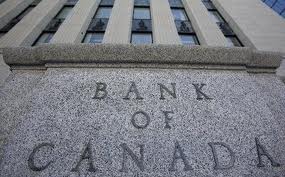Home Sales Now Expected to Outpace 2011; Vancouver will Push Down Average Price, Canadian Business
This article appeared on the Canadian Business website on March 7th, 2012 and was written by Sunny Freeman of the Canadian Press.
The number of Canadian homes sold this year will outpace 2011 while prices will hold steady in most parts of the country, the country’s largest real estate association said Monday in a rosy revision to its 2012 outlook.
The Canadian Real Estate Association said the number of home sales will grow by 0.3 per cent this year to 458,800 from 457,305 units in 2011, largely due to the continuation of low borrowing rates.
The national average price is forecast to dip by 1.1 per cent in 2012 to $359,100 but that’s due to a drop-off in multi-million dollar sales activity in Vancouver —Canada’s most expensive real estate market..
Prices are expected to remain around current levels in most parts of the country, CREA said.
The most recent forecasts reversed those CREA gave in November, when it expected home sales to fall by 0.5 per cent this year, and the national average home price to hold steady at $362,700.
The revisions come at a time when central banks in Canada and the United States are keeping their key lending rates low to counter the economic drag caused by the European debt crisis.
“Risks to the Canadian economic outlook remain elevated owing to the European sovereign debt quagmire, but the continuation of low interest rates is the silver lining,” CREA chief economist Gregory Klump said.
“So long as the European debt crisis is contained and a global economic recession avoided, low interest rates will support Canadian home sales and prices.”
CIBC economist Benjamin Tal said the new CREA forecast is much more in line with what he is projecting, and if anything it is “a best case scenario” forecast, with his bias being toward an expectation of more significant price declines.
“This is basically a stagnating housing market,” Tal said.
“This is not a housing market that is going to be on fire. This is a housing market that you’ll see activity moderating and prices actually going down.”
CREA expects Alberta, Saskatchewan, and Nova Scotia will drive the sales growth this year, offsetting weakness in British Columbia, Ontario, and New Brunswick.
In Vancouver, prices are already falling from sky high levels a year ago, especially in the once bustling condominium market, and prices elsewhere in country are not rising significantly to offset those big declines, Tal noted.
By contrast, sales and prices are still moving higher in Toronto, with sales up 16 per cent from last February and prices up 11 per cent.
However, a stagnating market is “exactly what we need to see” over the next few years to avoid a housing bubble that could burst, Tal noted.
“I think even real estate agents will tell you that another year of crazy activity with house prices rising by 10 per cent would not be good for their business from a long-term perspective.”
Sales are now expected to pull back by 0.3 per cent to 457,200 units in 2013, with prices rising 0.9 per cent to a national average of $362,300, CREA said.
Ontario is expected to weigh down the national results, as it is the only province not expected to make “modest gains,” CREA said.
The outlook would put national sales activity on par with the 10-year average for annual activity, the agency noted.
The Bank of Canada and some economists have warned that Canadians are piling on too much mortgage debt while interest rates are low, and some may no longer be able to afford their homes when interest rates rise.
One paper issued by the central bank suggested that home prices have been influenced not only by low mortgage rates but also on expectations that values will keep rising.
Meanwhile, CREA’s Klump has steadfastly declared Canada’s housing market is healthy, and is more likely in for what he calls a “soft landing.”
“Recent trends are reassuring, but interest rates remaining low for longer will doubtless keep the Canadian housing market under scrutiny for signs of overheating,” Klump said.
Tal believes that if there is a reacceleration of activity, the federal government would step in again with new mortgage rules to curb activity. Meanwhile, the central bank is unlikely to raise interest rates to soften the market because it is too broad of a tool that could hit other sectors hard.
“The real measure of intelligence is what you do when you don’t know what to do,” Tal said.
“And what you do when you don’ you don’t take chances so this fog of uncertainty will prevent it from switching policy any time soon.”

 OTTAWA: Canadian homeowners are loading themselves with too much debt and face serious problems if house values start to drop, the Bank of Canada warned Thursday.
OTTAWA: Canadian homeowners are loading themselves with too much debt and face serious problems if house values start to drop, the Bank of Canada warned Thursday.